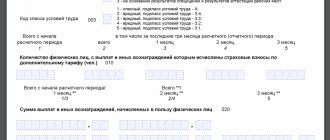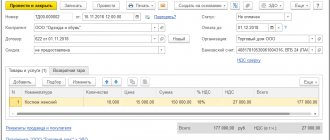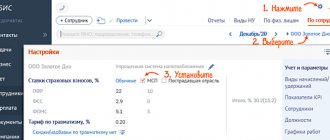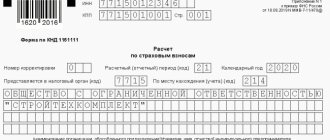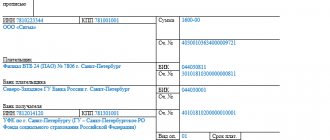Thanks to contributions from enterprises and individual entrepreneurs for insurance, in the event of temporary disability, retirement, or the need for medical care, the employee receives a payment from the insurer.
Dear readers! The article talks about typical ways to resolve legal issues, but each case is individual. If you want to find out how to solve your particular problem , contact a consultant:
+7 (499) 938-81-90 (Moscow)
+7 (812) 467-32-77 (Saint Petersburg)
8 (800) 301-79-36 (Regions)
APPLICATIONS AND CALLS ARE ACCEPTED 24/7 and 7 days a week.
It's fast and FREE !
What are the features of making insurance premiums? What should every manager and his employee know about rights and responsibilities?
What it is
Social insurance contributions refer to the obligations that employees or their employers have to pay social insurance benefits. This could be a payment for temporary disability, for example, deductions for industrial accidents.
All amounts are clearly regulated by the legislation of the Russian Federation and are contributed by the administration to the organization’s expenses every month.
Payments of this nature are perceived by individuals with understanding. Often there are no differences in taxpayer accounts between insurance payments and taxes.
The social security system should not be perceived as fully insurance: payment of contributions does not reach the level for such a system to be called solvent.
Legal grounds
Insurance premiums are paid in cases where a person is temporarily unable to work due to illness or childbirth and raising a child. The fund will pay for sick leave and maternity benefits.
The task of the extra-budgetary fund is to provide additional funds to priority economic sectors and expand social services to citizens.
Mandatory contributions include accident insurance and payments to the pension fund: for pension insurance and its accumulation.
The payment procedure is regulated by Federal Legislative Acts of July 24, 2009 No. 212 “On Insurance Contributions...”. Contributions for injuries are made in accordance with the Federal Law of July 24, 1998 No. 125.
Why do you need insurance?
The legislator makes a distinction regarding the compulsory nature of insurance depending on the likelihood of the expected risks and, directly, the facts of the incidents. Risks include:
- need for medical care;
- the need for money if the insured person has lost a source of income from an insured event;
- if the consequences of the incident entailed waste of the insured citizen.
So, risks include probable facts and those that occurred after the insured event. What does the latter include:
- the citizen reaches retirement age;
- disability;
- if the person who supported the family is gone;
- unpleasant situations at work - illnesses, injuries, other health problems due to the performance of professional duties;
- all cases preceding and accompanying women in becoming a mother: bearing a child, giving birth, caring for him, etc.
If an incident occurs, the insurer must fulfill its obligation to transfer funds to the victim. This payment is called insurance coverage; it can be issued one-time, for example, for the treatment of a patient, or have a regular nature - all types of pensions, various benefits, payments in case of insured events at the place of work, until the citizen recovers, etc.
Determining the moment when insurance obligations begin depends on the category of the participant in the relationship:
- the employer and his subordinate begin to be responsible for their duties after formalizing the employment relationship with a contract;
- other insured persons and insurers – from the moment of registration;
- those who independently provide themselves with work - after transferring taxes to the funds.
Social insurance contribution rate
The insurance tariff means the rate of insurance compensation from the insured amounts, taking into account the objects of insurance and the nature of the risks (Article 11. Law of the Russian Federation “On the organization of insurance business in the Russian Federation”).
Typically, the unit of insurance is the cash equivalent of 100 rubles. If insurance is compulsory, then the tariff will be set in accordance with legislative acts for each specific case.
For voluntary contributions, the rate will be determined by agreements signed between the parties (the policyholder and the insurer). In this case, the tariff is calculated by insurers (in accordance with the laws), since they are producers of insurance services.
In this case, it is necessary to calculate both the cost and the cost of services provided.
Insurance rate is the basis of insurance premiums (premiums) paid by policyholders for services. Thanks to the insurance fund, damage is covered in cases covered by insurance.
Therefore, the main purpose of rates for voluntary deductions is to determine and cover possible damage by insurers, which falls on a unit of insurance amounts.
In global usage, the insurance rate is called the gross rate.
Funds from which mandatory contributions are deducted
According to Art. 428 of the Tax Code, the amounts from which taxes can be deducted to social funds include:
- payments made by organizations to persons with whom they have an employment relationship, as well as for the fulfillment of civil obligations;
- profit from business activities;
- royalties from the results of author's activities;
- income from a contract for the results of intellectual property, including licensing transactions for permission to exploit the results of IP, etc.;
- for persons who provide themselves with labor - earnings from labor or civil agreements that were received for providing services to clients.
This article also provides for income from which such deductions cannot be withheld, these include:
- Benefits that are obtained as a result of civil agreements, in the form of transfer of rights to any type of property or rights to use them. However, this does not include copyright orders, as well as transactions related to the exercise of rights to IP results.
- Rewards that are transferred by insurers (specified in subparagraph 1 of paragraph 1 of Article 419 of the Tax Code) to foreigners or stateless persons. Labor relations with them must be formalized. The employees' place of work must be located in a foreign branch of a domestic company. This also includes payments that are transferred to the same categories of persons if they perform other work, which is regulated by civil law.
- Funds transferred under civil contracts for the activities of persons who carry out work on a voluntary basis Art. 7.1 Federal Law “On Charitable Activities and Charitable Organizations”. The only condition is that the amount of embezzlement should not exceed the amount of daily allowance established in paragraph 3 of Art. 217 NK.
- The edition of the Federal Law dated October 30, 2017 N 394 also introduced new conditions that relate to payments by foreigners (stateless persons) if they have entered into employment or civil contracts with FIFA. The subject of agreements can be any actions provided for by the Civil Code of the Russian Federation. Payment to volunteers for transactions with the International Federation of Football Associations and its structural divisions to implement the requirements of the law of the Russian Federation of June 7, 2013 N 108-FZ (for more details, see paragraph 7 of Article 420 of the Tax Code).
The basis for calculating payments, according to Art. 421 of the Tax Code, is determined at the end of the month for each employee/performer in whose favor the payment is made, on an accrual basis. The article also lists the features of calculating the base for withholding funds for copyrighted works, IP results and other profits.
Percent
They make contributions for social needs in accordance with Federal Law No. 212-FZ “On Insurance Contributions” dated December 28, 2010.
The following amounts are prescribed for insurance payments:
- 26% is transferred to the Russian Pension Fund;
- to the Social Insurance Fund of the Russian Federation – 2.9%;
- Federal Medical Insurance Fund – 5.1%;
- territorial health insurance funds (compulsory) - from January 1, 2012 - 0%.
Transfers to the pension fund are made after the following calculation:
- OPF – amount of contribution to the pension fund in rubles;
- Z – salary in rubles, which is accrued;
- Rps – % of contributions to the fund.
The calculation of deductions for social insurance in Russia is carried out as follows:
- Oss – the amount of deductions to the social insurance fund in rubles;
- Z – salary and other payments that are equivalent to it in rubles;
- RSS – % of social insurance contributions.
Health insurance contributions are calculated in a similar way.
The total amount is calculated as follows:
Law No. 212-FZ specifies amounts that are not subject to insurance contributions. This applies to:
- government benefits;
- compensation payments related to compensation for damage to health;
- payments related to the provision of residential real estate free of charge, payment for housing and services for communications, products;
- payments related to the deprivation of work of an employee, except for compensation for unused vacations;
- situations considered to be a state of emergency, for compensation for damages;
- amounts of one-time assistance to an employee in the event of the loss of one of the family members;
- the cost of special clothing, which is issued in accordance with legislative acts, including to federal civil servants - either without payment or with partial additional payment;
- amounts of payment for training specialists in the educational program, retraining and advanced training of employees.
Where are funds replenished from?
Federal law approves the budgets of state funds. However, they remain independent, are not included in the state budget and cannot be withdrawn. So, according to Art. 17, fund budgets are replenished by:
- insurance contributions to social funds;
- imposition of material sanctions;
- amounts seized by insurers from those responsible for incidents in a recourse manner;
- transactions from the budget, if prescribed by law, and other permitted sources.
Policyholders transfer contributions in accordance with the procedure provided for by the norms of tax legislation - Chapter 34 of the Tax Code of the Russian Federation “Insurance contributions”.
Accounting for deductions
Accounting for accruals on contributions and expenses that have been offset is carried out on account 69 for calculations of social insurance and security.
The deduction procedure is regulated by law. Additionally, I open sub-accounts:
- 69-1 – for social insurance payments;
- 69-2 – for pension calculations;
- 69-3 – for payments for health insurance;
- 69-4 – for calculations of the employment fund.
Debit of account 69 - the amounts listed as payment of accrued contributions for social needs are indicated.
Contributions are not fully used in the organization to pay employees the benefits specified in the legislation, including disability, and pension payments will be accrued from the PF amounts to a pensioner who continues to work.
Benefits will be accrued using the following posting:
- Dt 69-1 (for social insurance payments);
- Dt 69-2 (pension insurance);
- Kt 70 (for salary payments).
Those funds that were not used by the enterprise for insurance must be transferred to the relevant organization by non-cash payment using posting Dt 69 Kt 51.
How the organizational structure of the social insurance fund of the Russian Federation is presented, read in the article: structure of the social insurance fund of the Russian Federation. What tasks are performed by compulsory social insurance against accidents at work, see here.
Who can pay insurance premiums
The policyholder is considered the payer of the insurance premium. It could be:
- the person who makes the payment to an individual:
- Company.
- Individual entrepreneur.
- An individual that is recognized as an individual entrepreneur.
- individual entrepreneur, lawyer, notary, who conducts independent activities.
In the case where the payer can be classified simultaneously into two or more categories, then payment of insurance premiums is necessary for all reasons.
For example, an individual entrepreneur must make contributions to state social insurance for individuals who work for him and for himself.
Objects are subject to an insurance premium, and the base for accrual of payments to payers is determined in accordance with Chapter 24 of the Tax Code, but in a more extensive form.
This is a payment and other remuneration that is accrued by the payer of insurance premiums for an individual under an employment and civil law contract.
Changes in insurance coverage due to coronavirus
To support Russian business during the coronavirus epidemic in Russia, the President and Government of the Russian Federation are introducing special measures. Helping entrepreneurs and businessmen includes several privileges:
- Deferment of taxes and contributions.
- Reducing the tariff for insurance coverage to 15%.
- Delays in submitting reports, prohibition of tax audits.
- The Federal Tax Service bans blocking accounts and forced collection of debts until May 1.
- Credit holidays, preferential lending.
- Cancellation of rental payments (on state and municipal property).
All these benefits are provided for small and medium-sized businesses. Moreover, the government has identified 22 sectors of the economy that were most affected by the coronavirus. Businessmen from these industries will receive support first.
Tax holidays due to coronavirus
Representatives of small and medium-sized businesses will receive a six-month deferment on all taxes, except VAT and personal income tax. If a businessman belongs to the category of micro-enterprises, then he is entitled to a deferment on insurance premiums.
The new deadlines for payment of insurance premiums are as follows:
| Type of insurance premium | Duration of deferment for emergency services | Comments |
| For March, April and May 2021 | 6 months | The condition applies only to micro-enterprises |
| For June and July 2021 | 4 months | |
| Individual entrepreneur for himself, with an income exceeding 300,000 rubles. for 2019 (date until 07/01/2020 according to the Tax Code of the Russian Federation) | 4 months | Penalties and penalties are not accrued during the deferment period. |
Representatives of small and medium-sized businesses are provided with a deferment without an application. There is no need to submit any applications or documents to the Federal Tax Service. There will be no need for a corresponding decision or notification from the inspectorate.
Reduced insurance premium rates
Vladimir Putin, in his address dated March 25, 2020, announced a reduction in the tariff for insurance premiums from 30% to 15%. The privilege is provided only for small and medium-sized enterprises. Moreover, the benefit does not apply to all wages and other remuneration for work. The reduction in contribution rates is applied according to the new rules:
- for wages that do not exceed the minimum wage, the tariff for insurance premiums remains at the same level - 30%;
- for the part of wages that exceeds the minimum wage, the insurance rate is reduced to 15%.
Example:
Vesna LLC is a small business entity. The salary of a company manager is 30,000 rubles. The minimum wage from 01/01/2020 is 12,130 rubles. We calculate the volume of insurance coverage in a new way:
- We charge according to the basic tariff: 12,130 rubles * 30% = 3,639 rubles;
- We consider the amount of earnings exceeding the minimum wage: 30,000 rubles - 12,130 rubles. = 17,870 rubles;
- We calculate the amount of insurance at a reduced rate: 17,870 rubles * 15% = 2,680.50 rubles.
The tariff reduction is not a temporary measure due to the coronavirus pandemic. The President proposed introducing a new procedure for calculating insurance premiums for small and medium-sized businesses for the long term
Accrual and determination of the base
The deduction base for employers who pay funds to employees is determined as the amount of payments and other bonuses, which are described in Art. 7, clause 1 (Law No. 212-FZ).
Accrued for reporting periods to individuals, except for the amount that is non-taxable (Law 212-FZ, Art. 9).
The base for calculating social insurance contributions on wages is determined separately for each employee at the beginning of the billing periods after the end of the month.
An amount is established that should not exceed 415 thousand rubles on an accrual basis at the beginning of the period when the calculation is carried out. For the amount that exceeds this limit, insurance premiums are not charged.
The figure of 415 thousand is indexed annually according to salary growth in the Russian Federation. The amounts that do not require an insurance deduction for the payer paying contributions to an individual are specified in Art. 9 (Law No. 212-FZ).
The list has much in common with what is described in Article 238 of the Tax Code. There are also distinctive features.
For example, contributions are subject to:
- compensation for vacations that were not used;
- funds for one-time assistance to mothers at the birth of children, which exceeds 50 thousand rubles, and is paid within a year.
There is no need to make deductions to insurance funds for travel expenses: a daily fee, travel costs, for the services of transport companies, luggage, rental housing, communication services.
Monthly mandatory deductions must be made no later than the 15th day of the current month following the reporting month.
No one is immune from accidents in which performance is lost. It is in such situations that insurance funds will provide financial support.
All actions of an enterprise when making contributions to social insurance must be carried out strictly in accordance with the laws, where all the nuances are described in more detail.
You can find out what types of compulsory social insurance exist in the Russian Federation in the article: types of compulsory social insurance. Read about the rights and obligations of subjects of compulsory social insurance here.
What is meant by compulsory social insurance for workers is discussed in this article.
Differences and legislative basis for the activities of special social funds
The nature of the insured event or risk determines the subject of insurance agreements of special funds, which relate to the social, pension and medical areas of security.
On what basis does the FSS work?
The activities of the FSS are regulated in several areas.
Law of the Russian Federation dated December 29, 2006 N 255. An insured event is considered to be the loss of working capacity for some time and motherhood. In Art. 2 lists persons (with Russian citizenship, foreigners and stateless persons) who must be insured:
- those who work under an employment contract;
- civil government employees and local government employees;
- cooperative members;
- clergy;
- convicts who are required to work.
Private entrepreneurs, lawyers in various fields and other persons engaged in personal practice can receive social benefits if they pay contributions in their favor.
According to Federal Law No. 125 of July 24, 1998, employees who are in an employment relationship, as well as persons found guilty of a crime that are required to work, must be insured. The circle of insured persons is determined by incidents in the form of injuries, bodily harm, illnesses resulting from the performance of professional duties. Persons working in accordance with the provisions of the Civil Code can be insured only if the customer undertakes to act as an insured in relation to them. The basis for receiving payments for this type of insurance is the fact of the incident. If the insured person dies, the amounts can be received by disabled persons whom he supported (or those who lost their ability to work within 5 years from the date of death); children born after death; non-working relatives who care for family members of the deceased if they are under 14 years old or require care.
If the insured person dies, insurance coverage is also provided:
- persons under 18 years of age;
- adults until graduation from a higher educational institution (full-time study) up to 23 years of age inclusive;
- women 55+ and men 60+ until the end of life;
- disabled people.
If the victim has temporarily lost his legal capacity, he is entitled to payment in full of his average monthly earnings until his final rehabilitation.
PF status
In order to secure your old age, you need to make contributions to the Pension Fund. However, old age is not the only situation when the insured person is entitled to a pension (in this case it is called a funded pension). According to Art. 8 Federal Law of December 15, 2001 N 167, the pension is paid if the person providing for the family passes away, or if the insured person becomes disabled. The law also provides for payments for funeral services. From an organizational point of view, the Pension Fund acts as an insurer in these agreements and the state is subsidiarily liable for its debts.
In addition to PFs, private pension funds can also provide mandatory pension insurance. Insurers include organizations, individual entrepreneurs (including those engaged in personal practice), and individuals who make payments.
Who can be an insurer for compulsory health insurance?
According to Art. 9 of the Law of the Russian Federation dated November 29, 2010 N 326 distinguishes between such entities that provide insurance in the medical field: FFOMS, its structural divisions, medical organizations with or without insurance status. The functions of the insurer are carried out by the FFOMS through the work of territorial funds, which, in turn, can form branches in the form of branches and representative offices.
In order for a medical insurance organization to provide insurance services to clients, it must obtain a license and be included in the appropriate register. The basis for its activities is the relevant agreement. The operating procedure for a medical organization without insurance status is similar, except for the point about obtaining a license.


